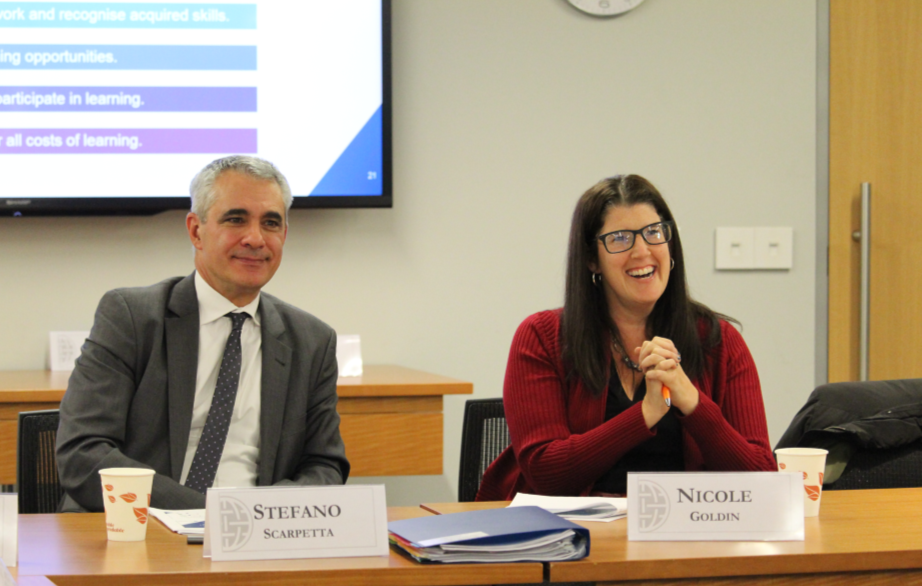
On November 14th, the Atlantic Council’s Global Business & Economics Program hosted a roundtable conversation with Dr. Stefano Scarpetta, Director for Employment, Labor and Social Affairs at the OECD. GBE’s Director, Bart Oosterveld, introduced the discussion which was moderated by Dr. Nicole Goldin, a nonresident senior fellow of the Global Business & Economics Program. The conversation focused on the importance of and global trends in adult learning systems.
Dr. Stefano Scarpetta outlinedthree major trends occuring in the international job market. This first trend discussed is increased automation and use of industrial robots. Dr. Scarpetta highlighted that though AI and robots were becoming more competitively priced, only costing about 10-20 USD per hour for certain work tasks, the fear that they will completely replace humans in the job market is unfounded. Rather they will transform the current format of jobs, just as computers had when they were first introduced, and the labor force will have to adapt to this. The second trend is the increasing proportion of labor in cross-border business, especially in regions like Europe. The third trend is an increasing dependency ratio across the world because of an ageing demographic.
OECD research shows that most countries have had steadily increasing employment rates in the last few decades as more women enter the labor force and older workers postpone retirement. The increasing demand for workers is concentrated in high and middle skill jobs whereas low skilled ones are being replaced. However, Dr. Scarpetta stressed the need to look beyond the labels of jobs and concentrate on the skills being demanded as the skills may be transferable across sectors. OECD’s study reveals that soft skills and high cognitive capabilities are those in high demand.Addressing this trend in skill demand will help improve global productivity; inaction will result in workers facing increasing threats of losing their jobs while employers struggle with high employee turnover and long vacancies.
The OECD’s Priorities for Adult Learning (PAL) dashboard analyses the standard of retraining and adult education across countries on metrics such as inclusiveness, alignment with the labor market, and financing.. Overall, Dr. Scarpetta established the importance of providing continuous inclusive training for labor market participants, especially older workers, to help them transition as technology and an increasingly integrated global economy transform the traditional format of jobs.